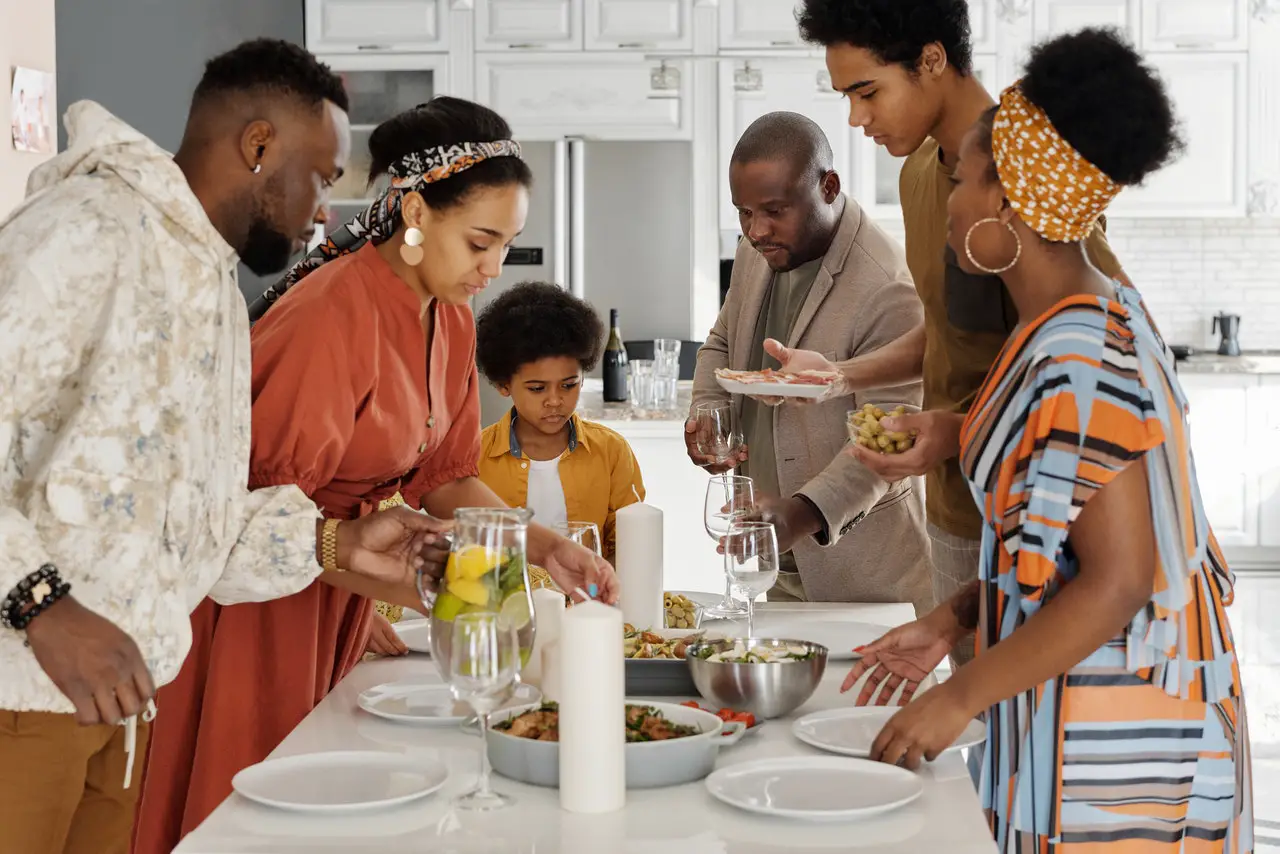Who are kinsmen in a family? Learn how to describe who is related to whom. Everyone has heard of relatives as one’s family in the language. But..
But do you know who are kinsmen in a family? In simple word, they are cousins and aunt or uncle.
If you are working in an organization where the employees or members of that organization have family relationship with each other, you may find them calling each other Kinsmen.
You are wondering why they say so and what is the meaning of kinsman. Well, this is a very common term in such cases. Here the term Kinsman means a person having same blood relations with others
What is a kinsman?
A kinsman is a blood relative, like a cousin, aunt, uncle, or sibling. In Biblical times, cousins were responsible for taking care of their widowed relatives. The Bible even has stories about how important it was to take care of a widow and her children.
A kinsmen could be related by birth or marriage. A woman could not be a kinsmen but she had to have one to take responsibility for her if her husband passed away before she did so that she would be taken care of and the family descendants would go on.
Maybe the term ‘kinsman’ isn’t used as much today because our society is different than what it was in Biblical times where women had no value other than being married and having children.
But there are still kinsmen around who feel obligated to take care of their widowed relatives even though they may not get anything in return other than knowing they helped someone out who needed it at some point during their life.
Which makes us all feel good about ourselves when we do good things for others just because it feels good inside too!
What are the three types of Kinsmen?
The first type of kinsman would be a levirate.
A levirate is a brother who is required to marry his deceased brother’s wife and bear children in the name of the deceased brother who passed away.
According to the Book of Deuteronomy 25:5-10, it says: “When brothers live together and one of them dies without a son, the wife of the deceased shall not be married outside the family to a strange man.
Then her husband’s brother shall go in, to her and take her to himself as wife, and perform the duty of a husband’s brother to her.
And it shall be that the firstborn son which she bears will continue his name, so that his name will not be blotted out from Israel.
But if the man does not wish to take his brother’s wife, then let his brother’s wife go up to the gate unto elders, and say: ‘My husband’s brother refuses to raise up unto his brother a name in Israel; he will not perform duty as my husband’s brother.’
Then let her kinsman redeemer come near unto her at the elders and take off her shoe from off her foot and speak before witnesses: ‘I have taken off my fellowman’s shoe.’ Thus shall his name be called by all Israel.”
The second type of kinsmen would be known as a kinsman redeemer.
This person was seen as being responsible for avenging any blood shed against another member in their family or tribe.
If someone had been harmed or killed by another group or person, it was seen as necessary for someone in their family or tribe to stand up and seek justice on behalf of those wronged.
In the Book of Numbers 35:19-21, it say: “The revenger of blood himself shall put the murderer to death; when he meets him, he shall put him to death. If he pushed him suddenly without enmity, or threw something at him lying in wait and as a result he died,
What are the duties of a kinsman?
- As a kinsman, you have the duty to provide for your family’s needs and wants.
- As a kinsman, you have the duty to take care of your family when they are sick, old or poor.
- As a kinsman, you have the duty to protect your family from harm or danger.
Ancestral families in Bible times were comprised of multiple people.
Have you ever heard the phrase “cousin-german“? Well, in Bible times, a kinman was considered a cousin.
Today we have fewer names for families and family members than people did in Bible times. Maybe that’s why the New World Translation says: “He [Jesus] is not the God of the dead, but of the living; you are badly mistaken,” (Luke 20:38).
In Bible times, an ancestral family was comprised of more than just one person. So if you were to look at your family tree today and saw only yourself as living – and everyone else who came before you as dead – you’d be badly mistaken because it would be incomplete!
A brother-in-law was responsible for providing children to his childless brother’s widow.
In Old English, a kinsman was one of your close relatives. This term could mean “blood relative” or “relatives by marriage or adoption.” Kinsmen were responsible for protecting and providing for their respective family members.
The term kinsman (or cousin) is even used in the Bible to describe blood relations and non-blood relations alike.
In biblical times, a brother-in-law was responsible for providing children to his childless brother’s widow. As it turned out, Ruth was not only Boaz’s cousin but also his fellow Israelite, which raised the stakes considerably higher than expected!
Kinsmen are family members who take responsibility for their respective family members’ livelihoods.
Kinsmen are family members who take responsibility for their respective family members’ livelihoods. In other words, these people play a huge role in determining how well the person they’re looking after survives and thrives.
Because of this, anyone that you’re in charge of taking care of is considered to be your kinsman. For example, if you have daughters that are under 18 years old and live with you, they would count as your kinsman because it’s your job to support them.
Conclusion
To sum it all up, kinsmen, is a term referring to the relatives or members of a family. Kinsmen are close relatives of yours or your spouse.
In the United States, these blood relations include parents, adopted children, biological children, grandparents, step-grandparents, parents-in-law, marriages and half siblings.

